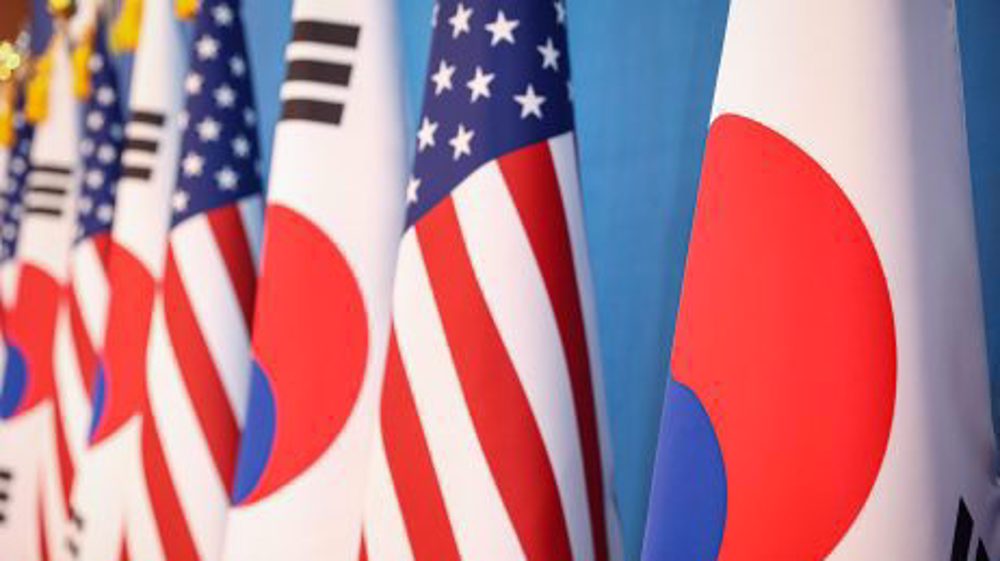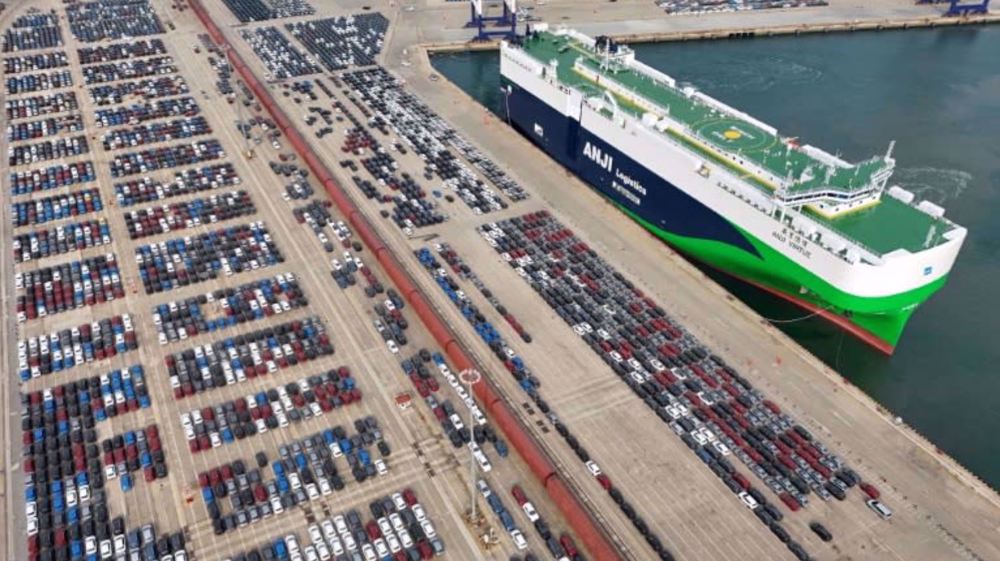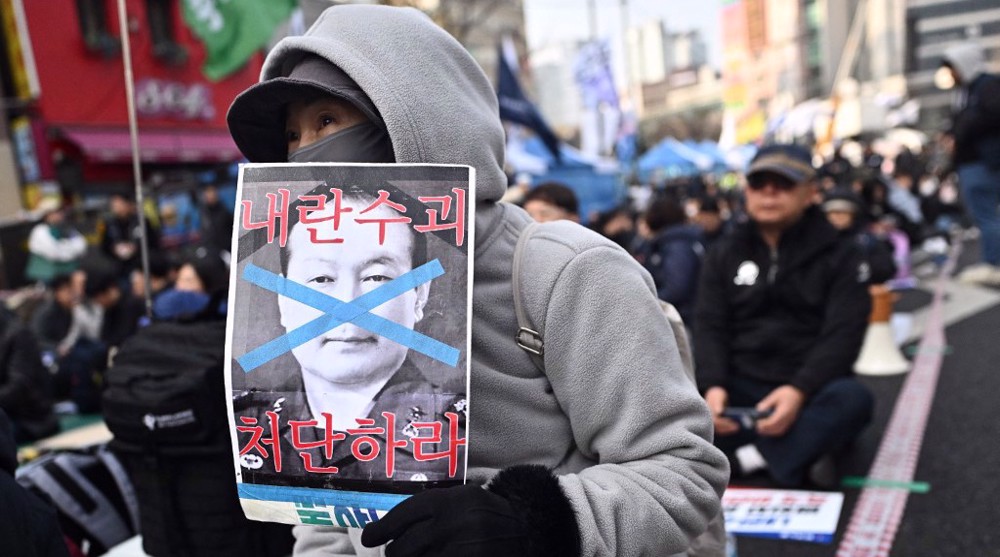Nuclear talks between North Korea, US break down in Stockholm
North Korea's chief negotiator says working-level nuclear talks with the United States being held in Stockholm after months of stalemate have broken down, blaming the administration of US President Donald Trump for the failure.
Kim Myong Gil made the remarks during a press briefing outside his country's embassy in the Swedish capital on Saturday.
“The negotiations have not fulfilled our expectations and finally broke up... without any outcome. (It) is totally due to the fact that the US would not give up their old... attitude," Kim said.
The representatives of North Korea arrived in Sweden on Thursday after Pyongyang unexpectedly announced this week that talks would kick off on October 5.
The high-ranking delegations led by US Special Representative for North Korea Stephen Biegun and Kim arrived for a joint meeting on the island of Lidingo on the outskirts of Stockholm earlier on Saturday.
In a tweet, Swedish Foreign Minister Ann Linde on Saturday confirmed negotiators from the US and North Korea were meeting in the country to discuss the peaceful solution.
"I am encouraged that US and (North Korean) working level delegations are currently in Sweden to hold talks," Linde said, adding, "Dialogue needed to reach denuclearize and peaceful solution."
The meeting was the first formal working-level talks since the US president and North Korean leader Kim Jong-un met at the Demilitarized Zone (DMZ) on the Korean Peninsula in June and agreed to restart negotiations that stalled after a failed summit in Vietnam in February.
The announcement of the resumption of talks came after Pyongyang on Wednesday test-fired a new ballistic missile designed for submarine launch.
The submarine-launched ballistic missile (SLBM), which flew 450 kilometers and reached an altitude of 910 kilometers, landed in waters near Japan’s Exclusive Economic Zone (EEZ).
North Korea, currently under multiple rounds of harsh sanctions by the UN and the United States over its nuclear and missile programs, put a unilateral halt to its missile and nuclear tests shortly before a diplomatic thaw began between Pyongyang and Seoul in early 2018.
Last month, North Korea welcomed a move by the US president to fire his national security adviser John Bolton, who espoused a standoffish view of how America had to deal with Pyongyang.
But diplomacy hit a dead end as the US refused to reciprocate unilateral North Korean steps. And later, Kim indicated that his country would resume its nuclear and missile tests.
The talks made little progress, largely due to Washington’s insistence on Pyongyang’s complete demilitarization before the removal of any US sanctions.
Pyongyang, on the other hand, has called for a step-by-step approach that would include verifiable American commitment to end its massive military presence near North Korean territorial waters.

US-South Korea trade tensions

China ‘firmly’ opposes countries making trade agreements with US at its expense

South Korea's court removes president over martial law controversy
Iran declares holiday in Bandar Abbas port as fire still raging
VIDEO | NY protesters demand end to genocide on Global Day for Gaza
VIDEO | Pope Francis funeral mass held in St. Peter's Square
VIDEO | UK education activists focus on decolonization
Iran supports any measure to strengthen peace, tranquility: Pezeshkian
Iran, Russia agree to transfer gas via Azerbaijan: Minister
VIDEO | US joins global protest day to demand Israel lift 8-week siege
HTS gunmen, allied militants kill over dozen Alawites in Syria’s Homs










 This makes it easy to access the Press TV website
This makes it easy to access the Press TV website